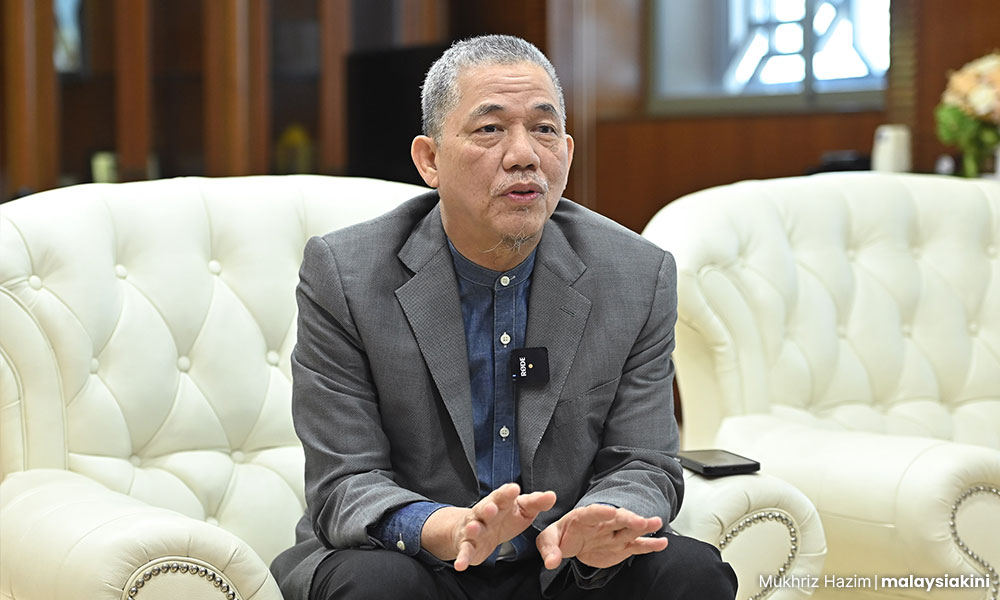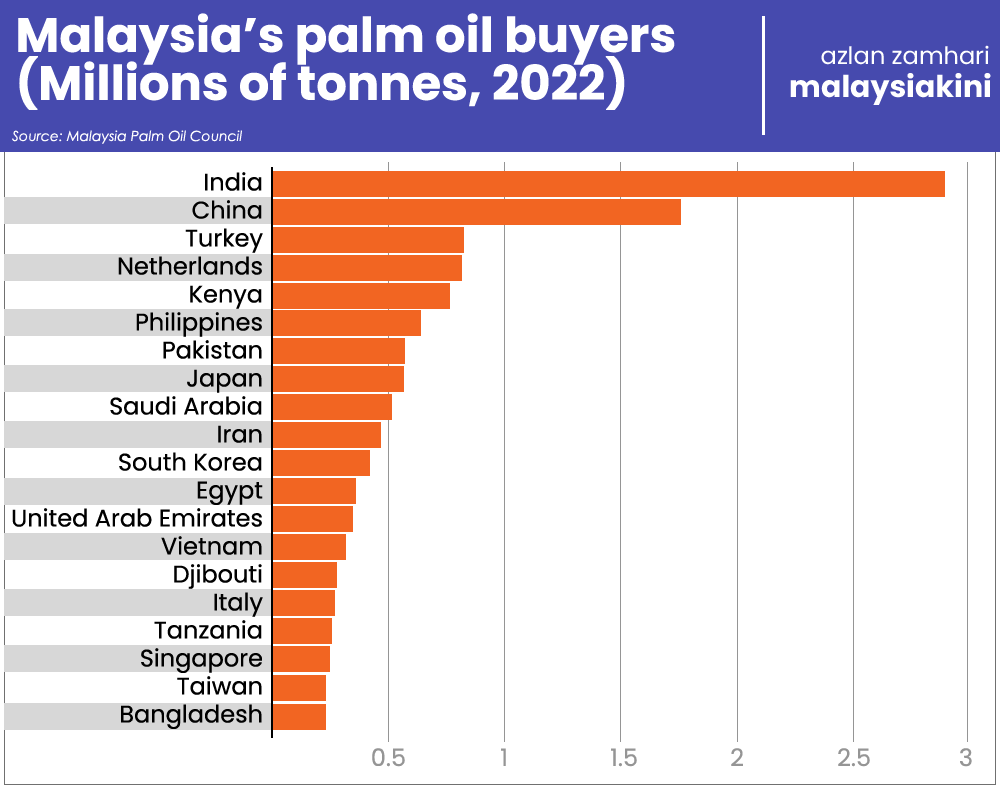Plantation and Commodities Minister Fadillah Yusof has hit out at the EU Parliament over its vote to approve the negotiated deal on the EU’s Deforestation Regulation (EUDR).
Fadillah, who is also deputy prime minister, said that the regulation is a deliberate effort to increase costs and barriers for Malaysia’s palm oil sector, and would hurt more than 450,000 smallholders.
"This ultimately would increase poverty, reduce household incomes and harm our rural communities – outcomes that stand in stark contrast to the EU’s commitments outlined in the UN Sustainable Development Goals.
"The EUDR is unjust and serves primarily to protect a domestic oilseeds market that is inefficient and cannot compete with Malaysia’s efficient and productive palm oil exports," Fadillah said in a statement today.
He said that the Malaysian government was consulting with partners such as Indonesia on an appropriate response to the move.

This came after the European Parliament overwhelmingly approved a groundbreaking new law in Brussels that will require companies to demonstrate that their products have not contributed to deforestation if they want to sell them in the EU market.
The new EUDR applies to beef, soy, palm oil, cocoa, coffee, rubber, and timber, as well as most of the products derived from these commodities like leather, hides and chocolate.
'High-risk' classification
Fadillah said the position of the Malaysian Government is very clear and that a small farmer exemption is needed.
He added that Malaysia objected to its 'high-risk' classification and urged the EU to recognise Malaysian standards.
"The EU should commit to a genuine exemption for smallholders in the EUDR. This would prevent large European importers from cutting smallholders out of supply chains – an entirely avoidable consequence should small farmers be given proper consideration.
"The EU should commit to not classifying Malaysia as a ‘high-risk’ country nor pursuing a jurisdictional approach.
"The designation of Malaysia as high risk is unjustified asMalaysia has made, and kept, world-leading commitments to forest conservation and sustainable agriculture that have been recognised by leading global institutions such as the UN FAO and the World Bank," said Fadillah.

He called on the EU to acknowledge the benefits of the Malaysian Sustainable Palm Oil (MSPO) standard – a mandatory sustainability certification - and recognise it as a path to compliance with the EUDR.
He added that Malaysia remains open to engagement with the European Union to address these concerns.
"The EU must now commit to genuine involvement for both governments and industries from producing countries, including as part of the ongoing Deforestation Platform.
"Malaysian palm oil is sustainable and one of the most-certified vegetable oils in the world today. The MSPO standard already guarantees Malaysia’s commitment to comprehensive sustainability standards and has helped reduce deforestation from palm oil to effectively zero," said Fadillah.
He said that Malaysia will continue to provide sustainable and deforestation-free palm oil to its global customers, and that it was disappointing to witness the European Union withdrawing from the global marketplace and erecting protectionist barriers.
"This move is woefully misguided, especially as the Asean and CPTPP (Comprehensive and Progressive Agreement for Trans-Pacific Partnership) groupings are gaining in influence and attracting new partners from around the world.
"The Malaysian government, working alongside our partners in Indonesia, is considering an appropriate response to this regulation, given the importance of the palm oil sector and the clear intent to impose an unjustified trade barrier.
"We urge the EU to address the concerns of Malaysia and the entire palm oil sector effectively and expeditiously." - Mkini



No comments:
Post a Comment
Note: Only a member of this blog may post a comment.